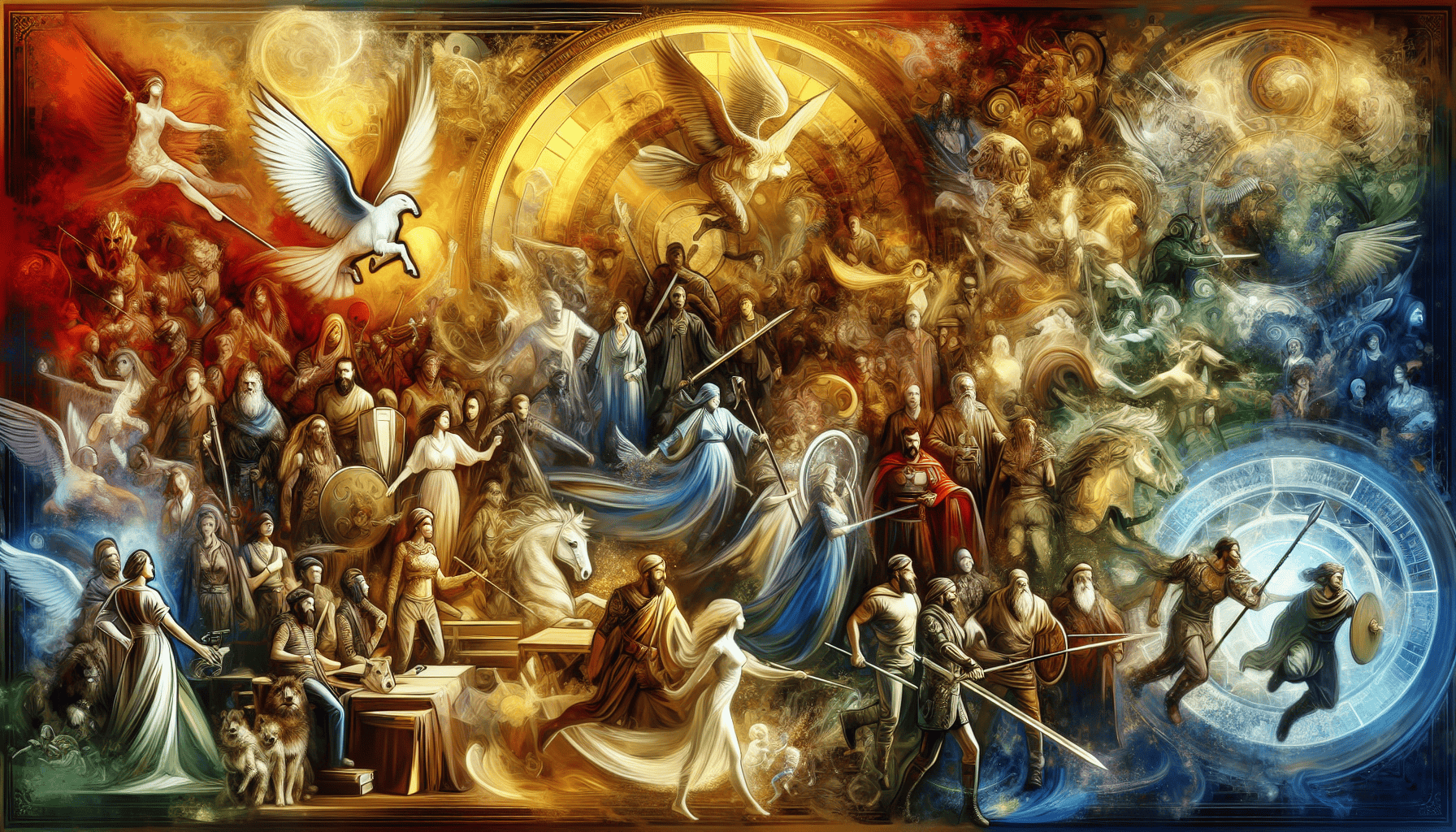Crafting epic storylines involves creating a tapestry of richly developed characters and intricate plots that captivate readers, drawing them into a world that feels as profound and resonant as their own. At the heart of such stories are elements that transcend time and place, offering themes and motifs that explore the essence of human experience.
One of the most important aspects of an epic storyline is its characters. These characters must be multi-dimensional and dynamic, evolving over the course of the narrative in ways that feel authentic and inevitable. They become a mirror to our own complexities, embodying virtues, flaws, struggles, and triumphs that allow readers to see themselves within the stories told. Characters should not be static, but instead undergo a journey of growth, shaped by the events around them and their own internal conflicts. Their development is intricately tied to the unfolding plot, and it is through their eyes that the story’s thematic layers are explored.
Setting is another crucial component. Whether it is a fantastical realm, a dystopian future, or a historically rich landscape, the setting must be detailed and immersive. It serves as more than mere backdrop; it influences the narrative, shapes cultures within the story, and challenges its characters, providing a stage where the drama unfolds. A well-crafted setting invites the reader to step into its world, offering a sense of place that is as transformative as the journey itself.
Plot is the scaffold upon which the epic storyline is built. It must be complex enough to sustain long engagement, yet coherent and crafted with an eye for pace and progression. The plot should weave together threads of tension, conflict, and resolution, each interlacing to form a larger narrative tapestry. Twists and turns must be logical and impactful, keeping readers on edge and invested in the ultimate outcome. This intricate plot structure demands careful planning and foresight from the author, ensuring that each event and revelation builds upon the last, culminating in a satisfying climax.
Themes are the soul of epic storytelling. These underlying currents explore fundamental truths and questions about life, society, morality, and the human condition. Themes of love and loss, power and corruption, identity and destiny, or freedom and oppression resonate across cultures and epochs, providing universal touchstones for audiences. A truly epic story encourages readers to reflect on these themes, drawing out meaning and connection long after the final page is turned.
Moreover, epic storylines often embrace the Hero’s Journey, a narrative arc that sees the protagonist embark on an adventure, face crises, and return transformed. While the hero’s path may vary, it serves as a foundational structure that resonates deeply, tapping into a collective understanding of growth through trial.
In crafting an epic storyline, language plays a pivotal role. The prose should be vivid and evocative, capturing not only the physical world but also the emotional and psychological landscapes of its characters. The author’s voice, distinct and compelling, should resonate throughout the narrative, adding layers of nuance and depth.
Ultimately, epic storylines captivate and endure because they speak to the heart of what it means to be human. They offer escape and reflection, challenge and reassurance, charting journeys that are both personal and universal. In such stories, readers find not only entertainment but also insight, offering windows into worlds that, though fantastical, hold truths as real as their own.
